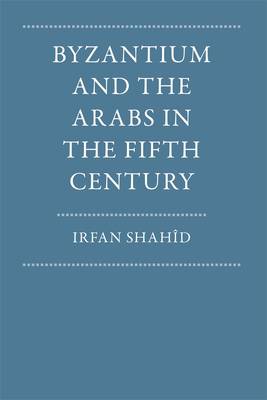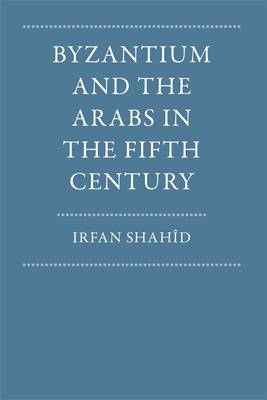
- Afhalen na 1 uur in een winkel met voorraad
- Gratis thuislevering in België vanaf € 30
- Ruim aanbod met 7 miljoen producten
- Afhalen na 1 uur in een winkel met voorraad
- Gratis thuislevering in België vanaf € 30
- Ruim aanbod met 7 miljoen producten
Zoeken
Omschrijving
Just as the Tanūkhids rose and fell as the principal Arab foederati of Byzantium in the fourth century, so too in the fifth did the Salīḥids. The century, practically terra incognita in the history of Arab-Byzantine relations, is explored in Byzantium and the Arabs in the Fifth Century by Irfan Shahîd, who recovers from the sources the political, military, ecclesiastical, and cultural history of the Arab foederati in Oriens and the Arabian Peninsula during this period. Unlike their predecessors or successors, the foederati of the fifth century lived in perfect harmony with Byzantium. Federate-imperial relations were smooth: the Arab horse reached as far as Pentapolis in the West and possibly took part in Leo's expedition against the Vandals. They were staunchly orthodox and participated in two ecumenical councils, Ephesus and Chalcedon, where their voice was audible. But their more enduring contributions were cultural, and may be associated with Dāwūd (David), the Salīḥid king; Petrus, the bishop of the Parembole; and possibly also Elias, patriarch of Jerusalem (494-516), a Roman Arab. The federate culture gave impetus to the rise of the Arabic script, Arabic poetry, and a simple form of an Arabic liturgy--the foundation for cultural achievements in subsequent centuries.
Specificaties
Betrokkenen
- Auteur(s):
- Uitgeverij:
Inhoud
- Aantal bladzijden:
- 624
- Taal:
- Engels
- Reeks:
Eigenschappen
- Productcode (EAN):
- 9780884024316
- Verschijningsdatum:
- 20/05/2025
- Uitvoering:
- Paperback
- Formaat:
- Trade paperback (VS)
- Afmetingen:
- 159 mm x 235 mm

Alleen bij Standaard Boekhandel
+ 225 punten op je klantenkaart van Standaard Boekhandel
Beoordelingen
We publiceren alleen reviews die voldoen aan de voorwaarden voor reviews. Bekijk onze voorwaarden voor reviews.








